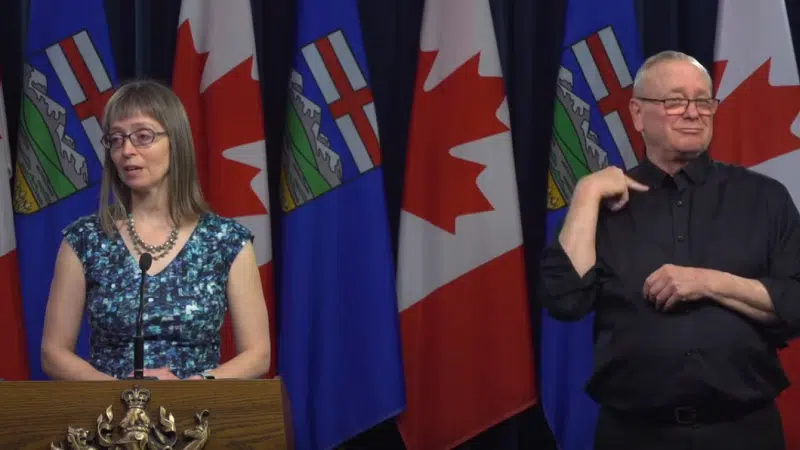
Translation for the deaf important to understanding COVID-19 pandemic
The City of Red Deer is doing its very best to provide accessible information when it conducts its nightly COVID-19 press conferences, the city’s Public Information Officer says.
Nationally and provincially, viewers have become accustomed to not only seeing politicians and health and emergency officials, but also the American Sign Language (ASL) translators by their side.
Those translators are a lifeline for members of the deaf community, who have varying levels of ability to read the English language, and even that only matters when closed captioning is available.
Some have raised the issue with the City of Red Deer, hoping they’ll incorporate it into their Facebook livestreams.



